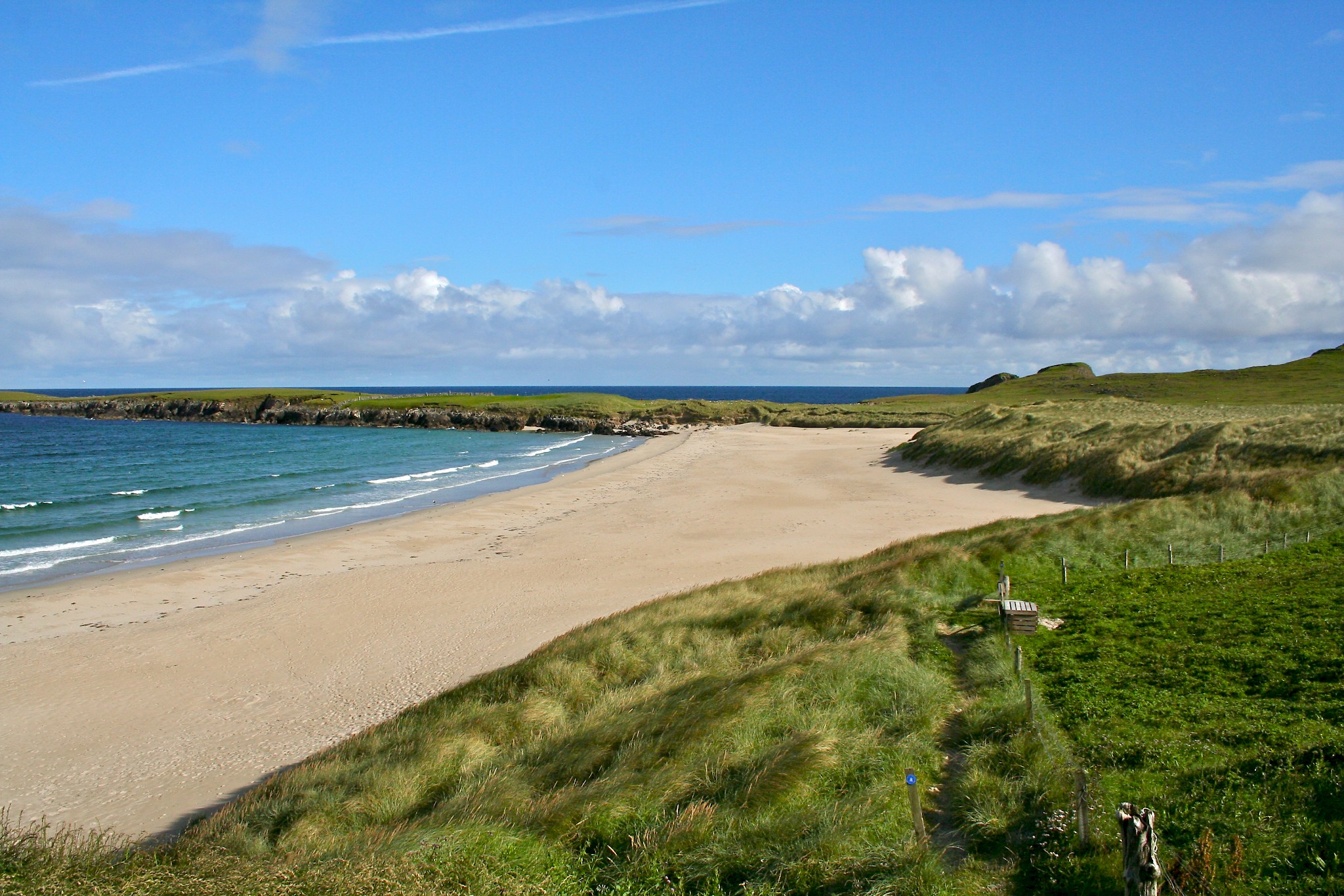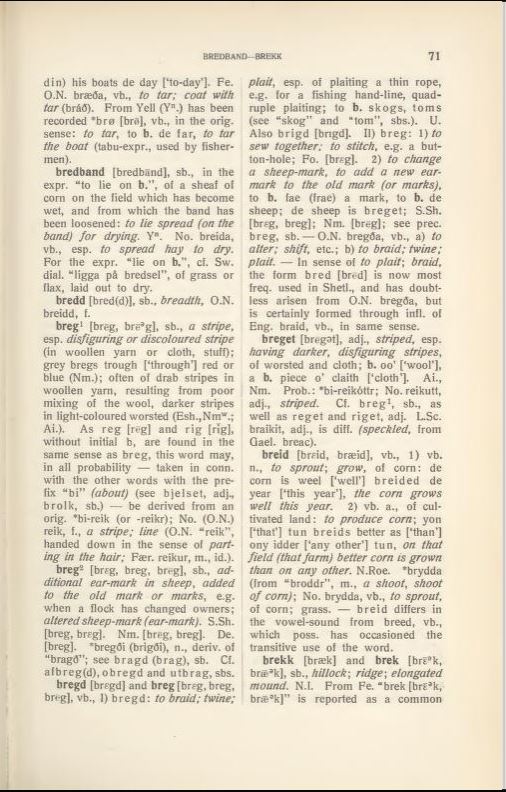
Breckon Sands, Yell
Yell, together with Unst and Fetlar, are the North Isles, which are the northern islands of the Shetland Islands. Yell has been inhabited since Neolithic times but from the 9th to the 14th centuries was under Norse rule before Scottish domination.
On the northern coast of Yell there is an inlet called the Wick of Breckon and the small hamlet of Breckon. The inlet is chcarcteriszed by a white sandy beach composed of crushed seashells giving the adjacent water a beautiful transluscent turquoise hue. To the west of the village of Breckon is an elevation referred to as Hill of Breckon.
Place Names of Yell
Many place names on Yell have an Old Norse origin. Indeed, Yell itself may derive from the Proto-Norse "Jala or Jela possibly referring to the whiteness of the sandy beaches of Yell. Other examples are vatn which is anglicized as water, -firth from fjörðr and sound from sund.
The Norse Dialect of Yell
The Shetland islands were pledged to Scotland by Norway in 1468-69. Prior to Scottish rule, the language spoken in the Northern Isles of Orkey and Shetland was Norn, a Norse dialect. Norn was gradually replaced by Gaelic and is thought to have become extinct with the death of Walter Sutherland the last known native speaker.
Jakob Jakobsen published An Etymological Dictionary of the Norn Language in Shetland in 1928. It is interesting to note the following entry.
brekk and brek, sb., hillock; ridge; elongated mound.... "brek is reported as a common noun, "brekk", mostly as a place-name...With suffixed def. art.: Brekken, Breggen, Brokken, Brogen... O.N. brekka, f., slope;edge.
Therefore, it seems possible that the village name of Breckon on the island of Yell may have a derivation from the local Norse dialect, Norn, and the name may reflect the hill (Hill of Breckon) adjacent to the village. It is interesting to note that the current usage of 'Hill of Breckon' amounts to a tautology!
brekk...

Sourced from the Norn Dictionary.
...brekk
Sourced from the Norn Dictionary.
Later History of Yell
There were trading links with the Hanseatic League from Burravoe on the isalnd of Yell.
